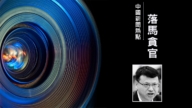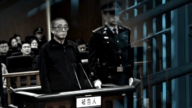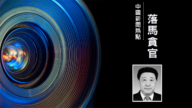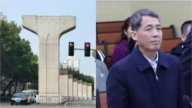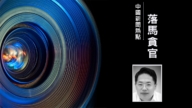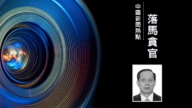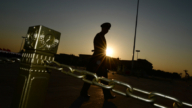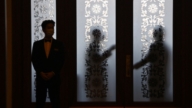【新唐人2013年04月23日訊】中共中央政治局近期帶頭開展所謂黨的「群眾路線」教育活動。活動要求貫穿「照鏡子、正衣冠、洗洗澡、治治病」的全過程。甚麼是「照鏡、正衣、洗澡、治病」?它與中共政權的歷史有甚麼傾向性?會不會和毛澤東在1942年開始的「延安整風運動」一樣?或只是中共內部清除異己的活動?下面請看專家的分析:
中共中央政治局19號召開會議,由總書記習近平主持會議。會議決定從今年下半年開始,用一年左右時間,在中共黨內自上而下、分批開展所謂:黨的群眾路線教育實踐活動。會議強調,這是新形勢下堅持「黨要管黨、從嚴治黨」的重大決策。
會議中還提到,當前,中共黨員幹部存在著不符合為民務實清廉要求的問題。特別是有的領導機關、領導班子和一些領導幹部形式主義、官僚主義、享樂主義突出,奢靡之風嚴重。甚至以權謀私、腐化墮落。這些問題,嚴重損害黨在人民群眾中的形象,嚴重損害黨群、幹群關係,必須認真加以解決。
這場活動,被外界解讀為中共新一次的「整黨運動」,也是中國大陸一場新的政治運動來臨的徵兆。
據了解,在前中共黨魁毛澤東尤其是鄧小平之後,中共歷任黨政領導人發動的「整黨運動」,已經形成了一種歷史小傳統。政論家胡平表示,習近平前任的每個黨魁上臺,都在做同樣的事情。
政論家胡平:「胡錦濤那時候甚麼『保先』,甚麼共產黨『先進性教育』。習近平顯然他受毛那套影響太大,用的詞用的話語都還是毛的那一套,像甚麼『洗澡』啊,『治病』啊﹗『洗澡』就是和『洗腦』是一個意思。」
胡平表示,早期共產黨對知識份子進行思想改造,就叫「洗澡」。叫幹部上樓洗手、洗澡,就是對幹部進行審查。問題小就叫洗洗手,問題大點叫洗個澡,其實就是進行清理的意思。胡平說,這與習近平前段時間所提的「反腐」並非一回事。
胡平:「而像『整風』,那就是整思想問題、路線問題,關鍵是,他是一個擺明瞭強化自己的統治地位,清除異己的一個問題。你說你要反腐,你不是見貪官你就整,屬於你這派的貪官你就不整,你整的都是你不喜歡的那一端,但是畢竟是總抓住別人的腐敗問題,那你現在搞『整風』,那很明顯就是『順你者昌、逆你者亡』了。」
《新華社》在通稿中歷數「整黨」的必要性,聲稱這次活動「以縣處級以上領導機關、領導班子和領導幹部為重點」。媒體認為,這已經構成習、李上位之後、至今為止規模最大的一場全黨性運動,不可避免的將波及到普通黨員。
原大陸史學教授劉因全:「習近平可能通過這件事情,來整頓吏治。我們知道中國的官員已經非常的腐敗了,他用了好多辦法,比如說:號召、教育、也抓了一些人呀,但是呢,不可能從根本上解決。他又不想進行政治體制改革。怎麼辦呢?他就想用像整風這種形式,來整頓幹部。」
通稿中反覆強調「思想教育」,對紀委和司法手段卻不置一詞,因此,「整黨」的成效令人質疑。原大陸史學教授劉因全認為,習近平不可能真正的實現憲政民主,而所謂的整風,也搞不深。
劉因全:「至於是不是能夠搞成像延安整風那樣呢?我想應該不會,因為習近平呢,他不大可能擁有像毛澤東那個時候,那麼大的權威來搞成那樣的運動。」
劉因全表示,雖然這個做法會起到一些作用,因為有一些人會因為害怕而有所收斂,但是並不會從根本上解決中共的腐敗問題。
胡平也認為,習近平將繼續沿襲中共一黨專制的做法,沒有任何改革的趨勢。
採訪/劉惠 編輯/周平 後製/李勇
Is a new rectification movement coming to China?
The Central Committee of the Chinese Communist Party
(CCP) recently spearheaded the so-called “mass line" educational activities.
Officials are required to “look in the mirror,
check appearance, shower, and treat illnesses.”
What do these activities mean?
Are they related to the regime’s political history?
Is this the same movement as Mao Zedong’s Yan’an
Rectification Movement in 1942 or just a means to remove dissidents within the CCP?
On April 19th, the Central Committee held its 19th meeting,
chaired by the General Secretary, Xi Jinping.
The outcome of the meeting is that starting from the second
half of 2013, for a duration of 12 months, the CCP will carry
out mass line educational activities, adhering to the major
principles of “managing the party strictly.”
Many issues were brought forth, such as CCP cadres
failing to serve the people or remaining incorruptible.
Some leaders engage in formality, bureaucracy,
and hedonism.
Others have abused power and have become corrupt
and degenerated.
These issues seriously tarnish the party image among
the people and seriously damage relationships between party groups.
They must be addressed.
This event has been widely interpreted as the party’s new
movement–a sign of a new political movement in China.
It is understood that after former leaders Mao Zedong
and Deng Xiaoping, it has become a tradition for the new leader to initiate a “Party Rectification Movement.”
Political commentator Hu Ping said that leaders
before Xi Jinping all did the same thing.
Political commentator Hu Ping: “Hu Jintao had his ‘staying
advanced,’ or advanced education.
Xi Jinping has been deeply influenced by Mao and likes
to use the same rhetoric, such as, ‘showering and treating illnesses.’
Showering means brainwashing, and they
are interchangeable.
In the early stage, when the CCP wanted intellectuals
to reform, they ordered cadres to go upstairs to wash their hands or take a shower for cadres’ review.
If you have a small problem, it is called hand washing;
a big problem is called showering.
It means, ‘『to clean up.’”
Hu Ping points out that this differs from
Xi Jinping’s anti-corruption.
Hu Ping: “Rectification is an ideological problem
or routing problem.
The key is strengthening one’s own control
and letting go of dissidents.
During the process of rectification, you want to fight against
corruption, but you don’t handle all corrupt officials the same way.
If they are in your camp, you let them off.
You always rectify mistakes of the other camp
or people you dislike.
So, the rectification movement obviously means,
‘prosper if you are with me, or you’ll perish.’”
A Xinhua News Agency article stressed the need
for “a whole party," claiming that these activities focus
on the leading units and leading cadres above
the county level.
The media believes that this is the largest whole party
movement since Xi-Li took office.
It will inevitably spread to ordinary party members.
Liu Yinquan, former history professor: “Xi Jinping
may use this to rectify officialdom.
We know that Chinese officials have been very corrupt.
He has tried many different methods, such as education
and jailing a few officials.
However, it cannot fundamentally solve the problem.
Xi does not want political reform, but what else can he do?
Therefore, he wants to use these activities
to rectify the cadres.”
The article also repeatedly stressed ideological education,
but not a word was written about the Law and Politics Committee or judicial branches.
Therefore, the results from party rectification
will be doubtful.
Prof. Liu believes that Xi can neither fill the constitutional
democracy dream nor carry out the rectification deeply.
On whether this will be as big a movement
as the Yan’an Rectification, he said, “I don’t think so,
because Xi Jinping does not have that much
power to mess with that kind of movement.”
Liu Yinquan said this would have some effect, because some
people will change somewhat due to fear, but it does not fundamentally resolve the corruption problem in China.
Hu Ping also believes that Xi Jinping will continue to follow
the one-party authoritarian practice, and there will be no reform.


